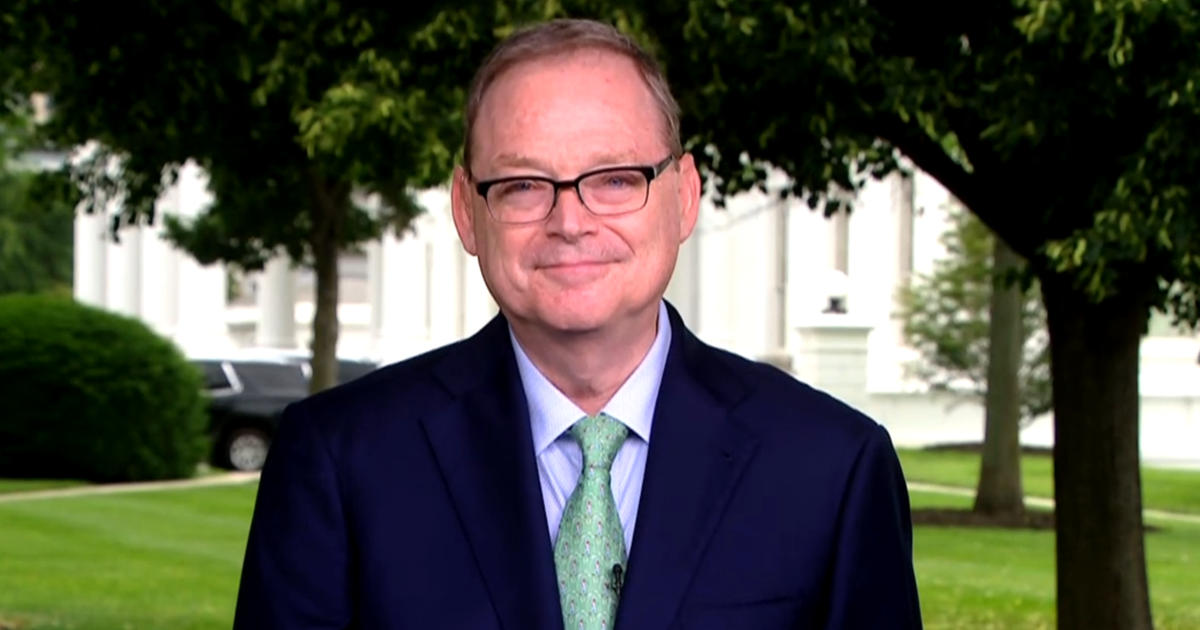In a deep dive into the intricacies of the Trump administration’s budget proposal, White House National Economic Council Director Kevin Hassett has made a firm declaration regarding the administration’s stance on Medicare. During an appearance on CBS News’ “Face the Nation with Margaret Brennan” on June 8, 2025, Hassett emphasized that Medicare cuts are not being considered in the budget proposal. However, he acknowledged that the administration remains open to revisiting provisions should credible reports of fraud or misuse within the program arise.
This assertion comes amidst a highly scrutinized period where the Senate is examining a House-passed budget bill. President Trump has affectionately referred to the proposed legislation as the “One Big Beautiful Bill.” This significant bill seeks to institute profound tax reductions, heightened border security measures, and modifications to both Medicaid and food assistance programs. Despite the sweeping changes, Hassett has reassured the public and lawmakers that Medicare remains untouched in the proposal, aiming to quell rumors and misinformation suggesting otherwise.
Moreover, Hassett’s comments on the popular Sunday talk show aimed to correct what he described as false narratives that surfaced the previous week, which suggested that targeting Medicare was a calculated objective of the Trump administration. He bluntly labeled these accusations as “big fake news stories,” thereby reinforcing the administration’s position.
The director’s remarks are crucial as they come at a time when economic strategies are being scrutinized for their long-term impacts. The nonpartisan Congressional Budget Office earlier projected that the proposed bill would add approximately $2.4 trillion to the national debt over the next decade. This massive potential increase underscores the delicate balance policymakers must navigate between stimulating economic growth and maintaining fiscal responsibility.
One specific aspect of Medicare under examination is the Medicare Advantage Program. Senator Thom Tillis of North Carolina, speaking to Charlotte’s WCNC, advocated for legislation targeting inefficiencies within this program. He emphasized that the focus should be on curtailing government overspending to insurance companies, which does not directly impact beneficiaries but aims to streamline operations and reduce unnecessary expenditures.
Further underscoring the administration’s dedication to fiscal scrutiny, Hassett explicitly stated that while extensive waste, fraud, and abuse had been identified in Medicaid, similar abuses in Medicare had not yet been brought to his attention. Nonetheless, he affirmed the administration’s commitment to addressing any issues uncovered during Senate evaluations.
The discussion around Medicaid and other low-income entitlement programs reveals that these are among the most contentious elements of the bill, as evidenced by heated debates and narrowly split votes. The bill passed the House with a slim majority and is now under Senate review, where GOP leaders are considering adjustments necessary to secure sufficient support under budget reconciliation rules.
Amidst this legislative tension, voices of concern have emerged from various quarters, including Republican senators like Susan Collins, Lisa Murkowski, and Josh Hawley, who have expressed apprehensions about the proposed adjustments to Medicaid, particularly the introduction of new monthly premiums for low-income recipients. Hawley has been vocal about his opposition, labeling the potential cuts as both ethically and politically misguided.
This debate takes place in a broader context of economic necessity as articulated by Hassett. He argued that failure to pass the bill could lead to significant job losses and a contraction in GDP, posing a stark warning about potential economic fallout. His arguments suggest a critical view that legislative inaction might jeopardize broader economic stability.
As the Senate prepares to unveil its version of the bill, significant changes could potentially send the legislation back to the House for final approval before it reaches President Trump’s desk. The evolving nature of this legislative process highlights the complexities and challenges inherent in crafting policy that balances economic growth objectives with the need for social safety nets like Medicare and Medicaid.
In conclusion, as the debate over the Trump administration’s budget proposal unfolds, key players like Kevin Hassett serve as vital communicators of the administration’s policy intentions and priorities. Their contributions are crucial in shaping public understanding and legislative outcomes that will have long-lasting impacts on the American economy and its citizens. This dynamic interplay of policy, politics, and public perception continues to define the contours of American governance in profound ways.









